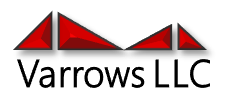Why Even Small Businesses Need a CRM

Most small businesses that we talk to and work with believe that a CRM is something reserved for large enterprise organizations with thousands of clients to manage. As a small business, they’re thinking smaller picture and just need a way to keep it all organized. They have in their minds that a CRM would provide little to no benefit for their small company while costing an arm and a leg to both buy and implement.
This couldn’t be further from the truth! With the functionality built into most current CRM’s, paired with cost savings that have been driven from cloud based computing, CRM systems can operate in some facet for every business, at an affordable price for all. Today’s CRM’s can enable businesses to be more organized, glean insights into sales and marketing to drive more business, and even help with marketing campaigns, inventory management, supplier management, invoicing, sales enablement, and so much more.
Let’s take a look at 5 ways a CRM can help your small business be more successful.
1. Sales Productivity
If your business is running a sales organization, a CRM should be on the very top of your list for implementation. CRM software can help automate the mundane aspects of your sales cycle such as follow up emails and call scheduling, call tracking, prospect priority grading, sales projections, and more to help your team close more business. Through most of today’s CRM’s your sales person can walk the client right through the process from initial outreach, to close, contracts signed, invoices sent, and payment received – all in one place to help them be more efficient with their time – so they can prospect more business! Plus, it gives management clear insight into sales activity, allowing you to track and gauge important KPI’s that drive sales success.
2. Marketing Automation
Most quality CRM’s have great ways of helping create and automate marketing campaigns to drive more business. Walking your potential customers through a channel of proven steps that can create more conversion opportunities is what every marketer is tasked with doing. Automating those processes so that your marketing people can work on optimizing campaigns is the Holy Grail. From drip marketing based on specific attributes of the contact, to creating and tracking promotions, and driving leads into your CRM through advertising and then automatically messaging them pertinent information based on what ad they clicked. All ways to help you and your team drive better results at the end of your sales cycle.
3. Supplier Management
Let’s say for the purpose of this example that you are an ice cream shop that doesn’t have a need for the functionality of items one and two in this list. You don’t have sales reps and your business thrives on walk-by customers. Great! I bet your successful ice cream shop has suppliers that it needs to manage delivering your product. This is where CRM’s have really come into their own in the past few years – being able to help with so much more than just customer management. Many current CRM’s come with great tools to help you manage your suppliers, gauge your inventory, track receipts of products from vendors, prioritize preferred providers, and even pay your vendors. No more tracking supplies and suppliers on spreadsheets. Plus, you can automate a lot of process such as sending orders for more product once supplies get to a certain thresholds. Many systems can even integrate right into your POS systems and help you keep track of your inventory outflow right through the purchase process in real-time!
4. Loyalty Management
The beauty of a CRM is the ability to track what your customers are doing. Through each purchase you can see who your best customers are, and provide them with incentives to keep coming back. You can start to create a database of customers that seem to buy the most often, or purchase the most expensive products. This allows you to create profiles of potential customers that you tend to make the most money from. Take that information to your sales and marketing strategy to understand what types of customers to focus more time and resources on.
5. Project Management
One of the most important aspects of a CRM is helping your manage and align your businesses projects. Assign projects, cases, work orders, etc. to your team, and associate it right with the customer that the work is for. Keep track of time spent on projects so you can run your hourly billing right through the built in invoicing of your CRM. Moreover, if your team works in the field, get them situated with the mobile application of your CRM so that they can report, complete, and bill for projects or work orders for your customers right there on site so you don’t miss a thing.
This really is just a sample of what a CRM can do for small and medium sized businesses. The functionality of the CRM these days can help across your entire company – keeping you more efficient and effective, and allowing you to spend more time on what it is you and your team do best. And with systems like the CRM available on the Qebot platform costing only $25 per user per month, it’s really affordable enough for any business type.
Want to learn more about how a CRM might be effective for your business? Schedule a free consultation with our team here.
